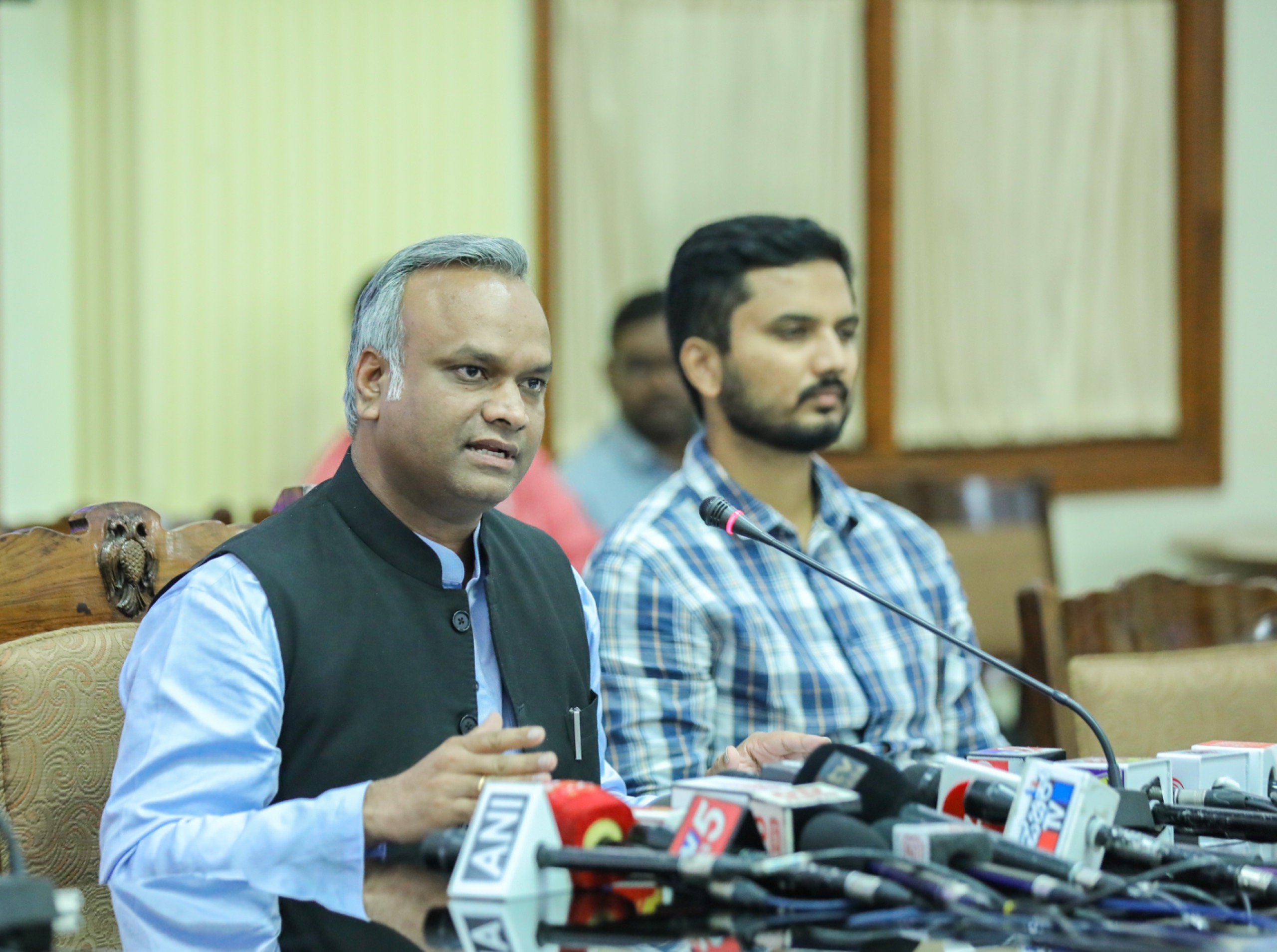The Karnataka Innovation and Technology Society has floated the EOI and the deadline for proposal submission is 16 October.

Minister for Information and Technology and Biotechnology Priyank Kharge rolled out the framework structure of the fact-checking unit in Bengaluru. (Supplied)
Karnataka government has floated an ‘Expression of Interest’ (EOI) for empanelling agencies to set up an Information Disorder Tackling Unit, aimed at tackling misinformation, disinformation, and fake news.
The Karnataka Innovation and Technology Society (KITS) has floated the EOI. The deadline for submitting proposals is 16 October.
Minister for IT/BT Priyank Kharge said that the government is serious about tackling misinformation, disinformation, and fake news.
In a post on the social media platform, X, he said, “The EoI includes: Fact Verification Team — This group will consist of impartial fact-checking organisations chosen by the state government to detect and address false information; Analytics Squad: Utilising advanced technologies such as data analytics and Artificial Intelligence, this team will actively oversee the ecosystem of misinformation; and Capacity Development team: This team will lead public awareness campaigns to educate people about the presence and consequences of the misinformation ecosystem.”
Govt of Karnataka is serious about tackling misinformation, disinformation, malinformation & fake news. The Expression of Interest has been floated for empanelment of agencies to set up an Information Disorder Tackling Unit for the Government.
The EoI includes:
+ Fact… pic.twitter.com/MsK5FZySm9
— Priyank Kharge / ಪ್ರಿಯಾಂಕ್ ಖರ್ಗೆ (@PriyankKharge) October 4, 2023
The objective of the EOI is to identify suitable agencies for each of the three components of the Karnataka Information Disorder Tackling Unit.
The invitation for bids is open to all entities registered in India who fulfil the pre-qualification criteria specified.
The criteria include — they should be a legal entity/company registered in India, should have at least three years of existence as of 31 August, 2023, should be involved in fact-checking service and have a track record of carrying similar activities/unit for other organisations.
Also, regarding transparency of funding, all funding received by the agency accounting for five percent or more of total revenue for the previous three financial years must be available on their website; and (there should be) no record of criminal proceedings on any serious crime or violation of code of conduct against the agency or any of the directors.
Kharge had shared the intricacies of this proposed entity in a press conference at Vidhana Soudha in Bengaluru on 14 September.
“The fact-checking body, a misinformation combat cell, will feature an Oversight Committee and a designated point of contact for review, along with nodal officers. The team’s primary responsibilities will encompass fact-checking, communication management, and outreach,” he said.
“The model would be transparent, apolitical, and unbiased,” the minister said, and added: “Hunting of misinformation, disinformation, and mal-information will be conducted in Kannada, English, and other regional languages.”
This fact-checking unit will operate in accordance with the existing laws and use Artificial Intelligence (AI).
The proposed unit will feature an Oversight Committee, review SPOC (Specific Point of Contact), and nodal officers. The cell will incorporate an analytics team, charged with monitoring the information landscape, providing early intelligence, and tracking the sources of information disorders.
A capacity-building team is also envisaged, focusing on public awareness campaigns and the development of applications to bolster the information ecosystem.
The proposed Oversight Committee will comprise key members from diverse backgrounds, including Head of Department of Information Technology, Biotechnology, and Science & Technology; Additional Director General of Police (Intelligence/CID); a representative from the Department of Information and Public Relations; MD of Karnataka Innovation and Technology Society; Dean of Electrical, Electronics, and Computer Sciences at Indian Institute of Science (IISc); Additional Advocate General; Central Head of CySecK (Centre of Excellence in Cyber Security); and representatives from civil society.
The review SPOC will include the Superintendent of Police of Intelligence or anybody decided by the Home Department.
The fact-checking unit’s guidelines are as follows:
Legal action will be initiated as per the existing laws: IT Act, 2000, IT Act (Amendment), 2008, Indian Penal Code, and Disaster Management Act, 2005.
(With PTI inputs)

May 20, 2024

May 19, 2024

May 19, 2024

May 19, 2024

May 19, 2024

May 18, 2024